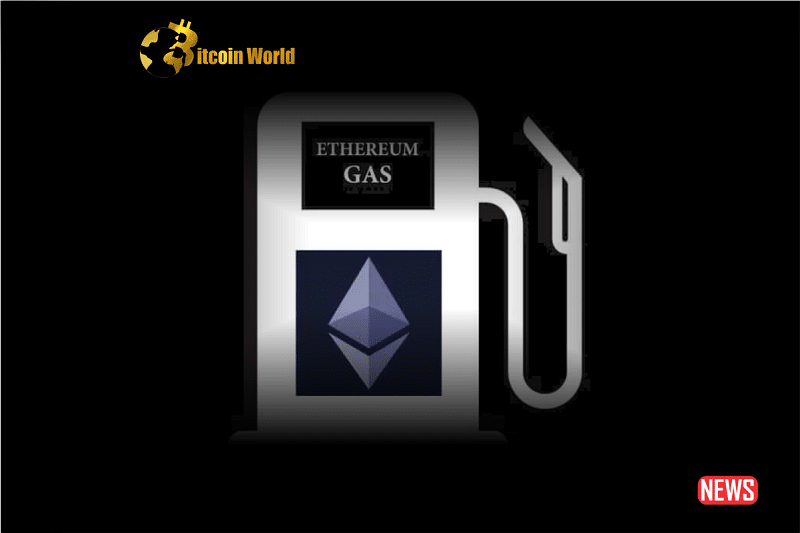
Ethereum, the world’s second-largest cryptocurrency, is experiencing significant shifts in its network dynamics. Recent data reveals that Ethereum’s gas consumption has dropped significantly, sparking questions about the reasons behind this decline and its impact on network activity.
Ethereum’s Gas Usage Sees a Sharp Drop
In a recent update from Glassnode Alerts, Ethereum’s daily gas consumption hit a new low over the past month. The data shows that ETH gas usage has plummeted to approximately 4.4 billion, down from 107.9 billion. This decline signifies a noticeable shift in network behavior, leading us to ponder the factors driving this change.
Ethereum Addresses See a Slight Impact
While Ethereum’s gas usage has decreased, Santiment’s 30-day active addresses chart indicates an increase in active addresses, surging from around 5.7 million to over 6 million. However, a closer look at the daily active addresses metric tells a different story. The numbers dropped from more than 452,000 on September 14 to approximately 373,000 by September 16. As of the latest report, the figure has further dwindled to approximately 140,000.
Transaction Fees Drop to Second-Lowest
Ethereum’s trading volume, according to Santiment’s volume chart, has also taken a hit. On September 14, it stood at over $5 billion but has since fallen to around $2.7 billion. Surprisingly, despite the decline in gas usage, Ethereum still holds the top spot for transaction fees, as reported by Crypto Fees. However, a deeper analysis reveals a decreasing trend.
As of this report, transaction fees have dipped slightly below $2.4 million, marking the lowest fees seen on the network in over three months. The previous lowest fee recorded was $2.2 million on September 10. This decrease in fees suggests that Ethereum users are enjoying more cost-effective transactions.
What Could Be Behind These Changes?
Several factors could explain the shift in Ethereum’s network dynamics. The decline in gas usage may result from improved network efficiency, leading to fewer transaction resources. Additionally, the drop in transaction fees may entice more users to engage with the Ethereum network.
Ethereum is undergoing a notable transformation, with decreasing gas usage, fluctuating active addresses, and lower transaction fees. While these changes raise questions, they could also indicate a more accessible and efficient Ethereum network, potentially attracting new users and use cases. Ethereum’s evolution continues to be a key development in the ever-evolving cryptocurrency landscape.
The post Ethereum’s Gas Usage Declines, Transaction Fees Hit Three-Month Low appeared first on BitcoinWorld.















